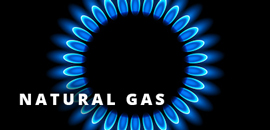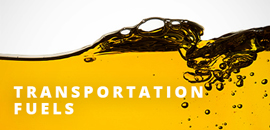PROGRESS REPORT
The Energy Management Team implemented several projects to reduce energy consumption during the past year. The West Plant Capital Project has been completed which converted 4160V motors to 480V motors and transitioned constant speed to variable speed drives. This resulted in a significant decrease in electrical usage that has been recognized for a year now. In addition, we have implemented a chilled water optimization program with Optimum Energy with the goal of lowering the kw/ton ratio in our utility plants. This has become a yearly focus to lower the kw/ton average usage in our utility plants.
On the building side, we have focused on fault detection and retro-commissioning to repair and address inefficiencies that we are discovering across the campus. This will be an ongoing continual effort. We implemented temperature and night setbacks in buildings and have seen a reduction in energy use index (EUI). We have fully analyzed the impact of inadequate return of steam condensate and have designs and proposals to fix the systems.
Overall, the energy reduction goals are slightly behind where we would like to be in terms of percentages. This is not due to a lack of effort or energy savings initiatives. Instead, there is an increase in usage because of COVID patient surge and Infectious Disease protocols. Our hospital has been significantly fuller in terms of occupied beds which drives additional energy usage. Also, the best practices for Infectious Disease control include increased outside air and increased filtration and circulation. This is counter to several of our energy savings initiatives that have been successful in recent years. In this case, the increases in energy usages were necessary to help ensure a safe environment for COVID patients.
GOALS
UTMB is continuing a long-standing effort to reduce energy while sustaining growth as a campus. The implementation of combined heat and power has significantly helped the reliability and efficiency of the utility plants. Over the next year, UTMB is continuing to push for additional reductions in energy usage. The goals below are in addition to the years of reduction we have already sustained and align with UT System goals of a 5% reduction of each utility over the next 10 years.
| Utility | Target Year | Benchmark Year | Percentage Goal |
|---|---|---|---|
| Water | 2030 | FY2021 | 0.05 |
| Electricity | 2030 | FY2021 | 0.05 |
| Transportation Fuels | 2030 | FY2021 | 0.05 |
| Natural Gas | 2030 | FY2021 | 0.05 |
STRATEGY FOR ACHIEVING GOALS
The Energy Savings Team is focused on several projects for the fiscal year.
- Improve condensate return to utility plants to reduce water usage and natural gas needed to heat make-up water. Several buildings have been identified that are not returning adequate condensate from steam systems
- Cooling coil condensate collection for use as makeup water in cooling towers or in thermal distribution
- Continue chilled water optimization that was implemented in FY21-22
- Fault detection and building energy profile metrics to identify potential issues
- Create a profile in the ENERGY STAR® Portfolio Manager to compare EUI of UTMB’s buildings to national average EUI of similar building types and identify potential energy saving opportunities
- Discharge air temperature setbacks and programming changes for improved operational efficiency
- Improved efficiency in implementation of CHP at utility plants
- Peak shaving to reduce demand charges and energy use
Over the next five years starting in FY23, UTMB has a Capital Renewal Plan with multiple projects that will reduce energy consumption of the associated buildings and increase efficiency in utility production. The projects include replacing thermal utility production equipment in multiple utility plants, replacing 100% outside air handling units (AHUs) in multiple buildings, roof replacement, window replacement and window re-glazing.
Transportation fuel reductions will be part of a larger initiative to transition UTMB’s fleet to electric vehicles over the next decade along with continued use of alternative fuel vehicles. Currently, UTMB manages 180 vehicles/trailers. The goal is to transition to 50% electric or alternative fuel vehicles by 2030. Electric charging stations will be installed starting in FY22. A pilot program for patient and visitor access to electric charging stations was completed in FY21. UTMB is partnering with Enterprise Fleet Management to determine feasibility of transitioning to alternative fuel vehicles as well as increasing the fuel efficiency of the current vehicles.
IMPLEMENTATION SCHEDULE
The West Plant Capital Project was completed in June 2021. Retro Commissioning began in FY21 and will continue for the foreseeable future. The chilled water optimization program was implemented in summer of FY21 as well. This program will continue to be fine-tuned through upcoming fiscal years.
Cooling coil condensation collection will have a study and design by the end of FY23. We will have a quote and possibly begin construction in FY24.
In FY23, the Energy Star® Portfolio Manager will be about 50 percent setup and completed in FY24. We will begin searching for additional energy saving initiatives once we have our baseline EUIs and national EUI averages to compare against.
In FY22, a utility master plan update began. This will take approximately two years to complete. In addition, a study is being completed to transition from steam to heating hot water on the buildings that have not already been converted.
The Capital Renewal Plan will begin in FY23. At our Angleton campus, physical plant equipment will be replaced starting in FY23 through FY26. Roof replacement/restoration will begin with two buildings in FY23, one building in FY24, four in FY25, two in FY26 and three in FY27. Window replacement and re-glazing will be phased from FY23 through FY27. All outdoor air AHUs and related HVAC equipment will be replaced in two of our research buildings and mixed air AHUs in a mixed-use building starting in FY23 through FY27. Steam boilers in our Galveston utility plant will be replaced in FY23 and FY24.
AGENCY FINANCE STRATEGY
Funding is approved for the utility master plan and capital plans per fiscal year. Operational funds will be used for the condensate return project, retro-commissioning and the fault detection work. All were funded for FY23. We are pursuing funding for additional differed maintenance and improvements on inefficient equipment that is beyond end of life.
UTMB received a research grant, which Property Services has requested a portion of, for funding of the Capital Renewal Plan. Approximately $6.32 million was approved for the Capital Renewal projects resulting in energy savings allotted for FY23. In total, about $50 million is required to complete all capital renewal projects that will result in energy savings.
EMPLOYEE AWARENESS PLAN
The Energy Savings Committee has utilized the University’s Weekly Relay notes to notify employee and students of energy savings initiatives. In addition, webform submissions were solicited from the employees and many led to savings initiatives that were implemented.
The Energy Savings Committee is evaluating peak shaving, some of which will require employee participation.
UTMB Utilities has developed an Annual Report that was posted on their website beginning December 2021.






